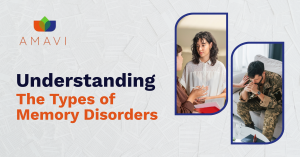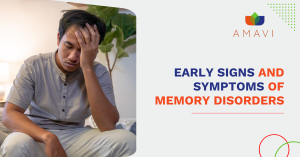The mental health of older adults is deeply influenced by the dynamics of their family and support systems. As people age, they often face challenges such as cognitive decline, physical health issues, and emotional stress, making family involvement an essential component of care. This post looks at the importance of family dynamics, strategies for family caregivers, and resources available to support families in geriatric psychiatry challenges. Family involvement is especially critical when managing cognitive decline, as seen in memory care strategies tailored for older adults.
Importance of Family Dynamics
Family dynamics play a significant role in shaping the emotional and mental well-being of older adults. Positive interactions and support can enhance their quality of life, while conflicts or neglect can exacerbate mental health issues.
1. Emotional Support
- Family members provide crucial emotional backing for older adults dealing with anxiety, depression, or loneliness. Feeling loved and valued fosters resilience and optimism in seniors.
- Regular communication and expressions of care help older adults feel connected and reduce feelings of isolation.
2. Effective Communication Patterns
- Open and empathetic communication within families helps address the emotional and psychological needs of elderly members.
- Poor communication or misunderstandings can lead to frustration, mistrust, and stress, negatively impacting mental health.
3. Role Clarity and Responsibility Sharing
- Clearly defined roles among family members, such as caregiving, financial management, or decision-making, reduce conflicts and ensure consistent care.
- Sharing responsibilities prevents caregiver burnout and strengthens the family unit.
4. Conflict and Cohesion
- Families that navigate disagreements constructively contribute to a stable and supportive environment. On the other hand, unresolved conflicts can create stress for older adults, worsening mental health conditions like depression or anxiety.
5. Influence on Treatment Outcomes
- Supportive families positively influence treatment adherence and recovery. Encouraging older adults to attend therapy sessions, take medications, or engage in healthy activities reinforces their commitment to mental well-being.
Strategies for Family Caregivers
Family caregivers often shoulder the responsibility of supporting older adults with mental health challenges. Adopting effective strategies can improve both caregiving outcomes and caregiver well-being.
1. Educate Yourself
- Understanding the unique mental health needs of older adults, such as depression, anxiety, or dementia, equips caregivers to provide better support.
- Learning about symptoms, treatment options, and coping mechanisms helps address challenges proactively.
2. Foster a Patient-Centered Approach
- Actively involve older adults in decisions about their care. Respecting their preferences and autonomy promotes a sense of control and dignity.
- Use empathetic listening to validate their feelings and address concerns.
3. Prioritize Self-Care
- Caregiving can be emotionally and physically exhausting. Caregivers should practice self-care by setting aside time for rest, hobbies, and social interactions.
- Seeking support from other family members or professional respite care services prevents burnout.
4. Build Strong Relationships
- Strengthen bonds with the elderly individual by spending quality time together. Engaging in shared activities or revisiting fond memories fosters emotional connection.
- Encourage intergenerational interactions to promote family unity and provide a sense of purpose for seniors.
5. Develop Problem-Solving Skills
- Address behavioral challenges associated with dementia or mental health conditions by using practical problem-solving techniques. For example, redirect attention or use calming strategies during episodes of agitation.
6. Encourage Healthy Lifestyle Choices
- Motivate older adults to adopt healthy habits, such as regular exercise, a balanced diet, and good sleep hygiene. These behaviors enhance mental and physical health.
- Support participation in cognitive activities, like puzzles or reading, to stimulate mental acuity.
7. Recognize the Need for Professional Help
- Seek assistance from mental health professionals when symptoms of depression, anxiety, or cognitive decline become severe.
- Utilize geriatric psychiatry services to access tailored treatments and interventions.
Resources and Support Systems
A robust support system can significantly alleviate the burden on family caregivers and enhance care for older adults. Leveraging available resources ensures comprehensive support for both caregivers and elderly individuals.
1. Professional Services
- Geriatric Psychiatry Clinics: Specialized clinics, such as Amavi Integrative Mental Wellness, offer tailored mental health care for older adults. Services include assessments, treatment plans, and support for conditions like depression and dementia.
- Counseling and Therapy: Therapists trained in geriatric mental health can address emotional and relational challenges faced by seniors and their families.
- Telepsychiatry: Remote psychiatric consultations provide accessible care for those in underserved areas or with mobility challenges.
2. Support Groups
- Caregiver Support Groups: These provide a platform for caregivers to share experiences, seek advice, and build a network of mutual support.
- Senior Peer Groups: Older adults benefit from interacting with peers who face similar challenges, fostering a sense of belonging and reducing loneliness.
3. Community Programs
- Senior centers, day programs, and recreational activities promote social engagement and mental stimulation.
- Local organizations often offer educational workshops, counseling services, and resources for managing mental health in older adults.
4. Technology-Based Solutions
- Digital Tools for Seniors: Apps and online platforms provide cognitive games, medication reminders, and virtual therapy options tailored for older adults.
- Video Communication: Platforms like Skype or Zoom enable seniors to maintain connections with distant family and friends, mitigating isolation.
5. Government and Nonprofit Resources
- National Institutes on Aging (NIA): Provides comprehensive information on mental health, caregiving, and elder care.
- Area Agencies on Aging (AAA): Local agencies offer services like transportation, meal delivery, and caregiver training programs.
- Nonprofit Organizations: Groups like the Alzheimer’s Association and AARP offer resources, education, and advocacy for seniors and their families.
6. In-Home and Respite Care
- Professional caregivers can provide in-home assistance with daily tasks, offering relief to family caregivers.
- Respite care services allow caregivers to take breaks while ensuring the continued care of their loved ones.
Family plays an indispensable role in the mental health of older adults, offering emotional, practical, and social support. By understanding the significance of family dynamics, adopting effective caregiving strategies, and utilizing available resources, families can create an environment that promotes well-being and resilience.
At Amavi Integrative Mental Wellness, we recognize the importance of family involvement in geriatric mental health care. Our team provides specialized support for families and older adults, ensuring holistic and compassionate care. Contact us today to learn how we can support your family in navigating the challenges of aging together.





